Astrology is a complex and fascinating subject that has existed for thousands of years. It is an ancient art that seeks to understand the influence of celestial bodies on human affairs.
One such celestial body that has fascinated astrologers for centuries is the planet, Neptune. This article will delve into the history of Neptune’s discovery, its importance in astrology, and its role in shaping our lives.
A brief history of Neptune’s Discovery
Neptune was discovered on September 23, 1846, by German astronomer Johann Galle. The discovery resulted from calculations made by French mathematician Urbain Le Verrier, who had predicted the existence and location of Neptune based on irregularities observed in Uranus’ orbit. Le Verrier had sent his predictions to Galle at the Berlin Observatory, who then used them to locate the new planet.
The discovery of Neptune was a significant achievement in astronomy as it confirmed that there were other planets beyond Uranus and expanded our understanding of the universe. It also sparked debate among astronomers about whether the planet should be named after Le Verrier or another mythological name from Roman or Greek mythology.
Importance of Neptune in Astrology
In astrology, each planet is believed to have unique qualities that influence our lives and personalities. Neptune is a transpersonal planet representing spirituality, intuition, creativity, and imagination. Its subtle but powerful energy can help us connect with higher realms to gain spiritual insights.
Neptune also rules over Pisces, one of the twelve zodiac signs known for their emotional depth and sensitivity. People born under this sign are considered intuitive dreamers who are highly creative but can also be prone to escapism.
Understanding Neptune’s influence can help us tap into our spiritual gifts while staying grounded in reality. In the following sections, we will explore the astrological significance of Neptune, its role in natal charts, transits, mythology, and associated archetypes, and how retrogrades affect us.
Astrological Significance of Neptune
Neptune is one of the outer planets in astrology, and its position in a birth chart can significantly influence an individual’s personality and life path. Neptune is known as the ruler of Pisces, which brings a sense of mysticism and spirituality to this zodiac sign.
It represents the Dreamer, the artist, and the spiritual seeker. Those with strong Neptune placements often have an otherworldly aura that draws others in.
Ruler of Pisces
As the ruler of Pisces, Neptune governs our emotional responses to situations and people. Those born under this sign are often highly empathetic, imaginative, and sensitive.
They are known for their ability to connect deeply with others emotionally and spiritually. However, this can also lead to a tendency towards escapism or addiction if they do not learn how to manage their emotions healthily.
Symbolism and Meaning in Astrology
In astrology, Neptune is associated with water – specifically, the vast depths of the ocean that remain largely unexplored by humans. This symbolism reflects its role as a planet that governs our subconscious minds and hidden desires. It represents our deepest fears, fantasies, and dreams – aspects of ourselves that we may not fully understand or even be aware of.
Neptune’s influence can be seen in our creativity, spirituality, intuition, compassion, and selflessness – all qualities associated with water signs such as Pisces. However, it can also manifest as confusion or delusion if we get lost in our dreams without grounding ourselves in reality.
Influence on Personality Traits And Characteristics
Individuals with strong Neptune placements tend to be highly creative and drawn toward artistic fields such as music, dance, or writing. They often possess exceptional emotional intelligence, making them highly empathetic and sensitive to the needs of others. These individuals are guided by their intuition, which allows them to sense things beyond the physical realm.
However, Neptune can also make individuals prone to addiction and escapism. They may struggle with boundaries and find themselves lost in fantasy worlds or unable to face reality when difficult.
They must develop robust coping mechanisms to balance their dreamy nature with practicality. Overall, Neptune’s influence on our astrological charts offers a nuanced understanding of our spiritual and emotional selves, encouraging us to explore our deepest desires and dreams while grounding ourselves in reality.
Neptune’s Role in Natal Charts
Placement and Aspects in Natal Charts
Neptune’s placement in the natal chart can reveal much about an individual’s emotional and spiritual nature. It represents our subconscious, dreams, and fantasies when well-aspected Neptune can indicate a heightened sense of intuition, creativity, and empathy.
However, challenging aspects to other planets or points in the chart can suggest confusion, deception, or escapism. The house placement of Neptune is also significant.
For example, if Neptune is in the 1st house (self), it suggests someone with a solid, imaginative character who may struggle with boundaries between themselves and others. In contrast, if Neptune is located in the 10th house (career), it could indicate someone drawn to artistic or spiritual careers over conventional ones.
Effects on Emotional and Spiritual Growth
Neptune’s influence on emotional and spiritual growth can be significant. Individuals with favorable aspects to Neptune may have a heightened sense of compassion for others and can tap into their emotions more quickly than others. On the other hand, challenging aspects may manifest as confusion or lack of boundaries around emotional expression.
Regarding spirituality, individuals who have Neptune strongly expressed in their chart may be drawn to mysticism or transcendental experiences that help them access higher states of consciousness. Those with negative aspects might struggle with addictions or become more vulnerable to deception by unscrupulous gurus.
Relationship to Other Planets in the Chart
The relationship between Neptune and other planets within the natal chart can reveal important insights into an individual’s personality traits and characteristics. For example, a conjunction between Venus (love) and Neptune (dreams) might indicate someone who falls deeply in love but idealizes their partner too much.
Similarly, if Neptune is in a challenging aspect to Mars (action), it could suggest someone who has trouble taking decisive action or struggles with feelings of anger or resentment. Understanding these planetary relationships can help individuals gain greater insight into their nature and make more informed living decisions.
Navigating Neptune’s Influence on the Chart
Neptune’s influence in the natal chart can be positive and negative, depending on how it is expressed and integrated into an individual’s life. To navigate this influence, individuals should take time to reflect on their emotional patterns and habits. Developing a mindfulness practice can help individuals become more aware of how they respond emotionally to different situations.
It is also important for individuals with strong Neptune placements to set healthy boundaries around their emotional expression. This may involve learning to say no when needed or having honest conversations with loved ones about your needs and limitations.
Understanding Neptune’s role in the natal chart can provide valuable insights for self-reflection and personal growth. By embracing this planet’s influence, individuals can tap into their intuition, creativity, and compassion while avoiding the pitfalls of confusion or escapism that might come with challenging aspects.
Transits of Neptune
Neptune is one of the outer planets, meaning its transits can last for years and profoundly impact personal growth, relationships, and career. Its slow movement means it spends a significant amount of time in each sign, around 14 years. Neptune’s energy can feel pervasive and challenging to navigate during these long transits.
Duration and frequency of transits
Because of its long orbit, Neptune’s transits to a specific area of the natal chart are relatively infrequent. However, their effects can be far-reaching and transformative when they do occur.
The duration of these transits depends on the individual chart but typically lasts 1-3 years. If Neptune makes challenging aspects to personal planets or angles in the chart during this period, it may cause confusion or disillusionment.
Effects on personal growth, relationships, and career
Neptune’s influence during transit is often described as dreamy or foggy. It can be challenging to decipher what is real from what is an illusion or fantasy during this period. This energy can lead to spiritual growth for some individuals but may also cause delusion or escapism for others.
In terms of relationships, Neptune’s energy can create a romanticized view that may not be grounded in reality. This influence can lead to idealizing partners and ignoring red flags in an attempt to maintain an illusionary connection.
In career matters, Neptune’s energy encourages creativity but may make it challenging to focus on practical tasks or take action toward goals. This transit could push individuals towards artistic endeavors or careers that involve healing work.
Strategies for navigating challenging transits
To navigate through the challenges that arise during transit from Neptune successfully requires patience and perspective-taking skills; meditation could assist with this process by eliciting a calm state of mind. Trying to avoid or escape the issues at hand is unlikely to be successful. Instead, individuals should focus on developing boundaries, keeping practical goals in mind, and seeking clarity through self-reflection.
It is essential to practice honesty with oneself during this time and avoid getting swept away in the dreams or fantasies Neptune’s energy can create. Surrounding oneself with a supportive community or seeking professional guidance may also be beneficial during a challenging transit from Neptune.
Mythology and Archetypes Associated with Neptune
The planet Neptune is named after the Roman god of the sea. In Roman mythology, Neptune was also known as Poseidon in Greek mythology.
He was one of the twelve Olympians, ruling over the seas and all its creatures. As a god of fresh and saltwater, he had power over all aquatic life forms.
His trident represented his control over oceanic waters. In astrology, Neptune’s influence extends beyond just water-related matters.
It is associated with a range of archetypes often connected to spirituality and intuition; these archetypes have their roots in various mythologies worldwide. One such archetype associated with Neptune is that of the Dreamer or mystic, who follows their intuition and has access to higher realms of consciousness.
Neptune as a god in Roman mythology
In Roman mythology, Neptune was depicted as a bearded man holding a trident while standing on top of rolling waves. He was often portrayed riding in a chariot pulled by hippocampi- horses with fish tails- created by his hand; hippocampi became symbols of seafaring people everywhere, including sailors and fishermen who often adorned their boats with them for protection.
As an astrological symbol, Neptune represents mystery and depth like its namesake god from Roman mythology. It is also associated with imagination, fantasy, glamour, illusion, psychic abilities, or mysticism.
Archetypes associated with the planet
The archetypes associated with this planet are varied but stem from similar themes such as spiritual connection or creativity: The Dreamer archetype – someone who lives within their imagination rather than reality; The Mystic archetype – someone who has access to higher realms of consciousness through intuitive abilities or meditation practices; The Artist archetype – an individual whose innate creativity allows them to produce art that is both beautiful and profound. The archetype of the Dreamer is perhaps the most often associated with Neptune. This archetype represents someone who spends more time living within their imagination than in reality.
The Dreamer is often a visionary, able to see beyond the mundane and into more abstract realms. They are creative, intuitive, and deeply spiritual individuals who have a unique perspective that allows them to bring beauty and grace into the world around them.
Neptune’s connection to mythology provides insight into its astrological significance. The god’s power over the water was a metaphor for his influence over our emotions, intuition, and subconscious mind.
Additionally, Neptune’s association with archetypes like the Dreamer or Mystic reveals its focus on spirituality and creativity in our lives. Understanding these archetypes can help us tap into Neptune’s energy in our natal charts or navigate challenging times during transits.
Neptune Retrograde
What is retrograde?
In astrology, retrograde is a term used to describe the apparent backward motion of a planet as seen from Earth. A planet is said to be retrograde when it appears to move in the opposite direction of its usual orbital path.
This phenomenon occurs periodically for all planets, but each has a unique retrograde cycle. During this period, the planet’s energy and influence are thought to be intensified and more reflective.
How does it affect us?
When Neptune is retrograde, it offers an opportunity for introspection and self-reflection. This can be a time of heightened intuition, spiritual awareness, and increased sensitivity to emotions and the unseen world. However, the energy can also bring confusion, illusion, or delusion into our lives, making it harder to distinguish between what is real.
Many people experience difficulties with communication during Neptune retrogrades because they may feel like they are not being heard or understood by others due to unclear thoughts or lack of focus. It can also make one more prone toward escapism by creating a tendency towards addictions such as overindulging in alcohol or other substances.
The effects of Neptune’s retrograde cycle will vary depending on how sensitive an individual is to the energy shifts that come with planetary transits. Some people may feel overwhelmed by this shift, while others may experience deep revelations about themselves during this time.
What to expect during the retrograde?
During Neptune’s retrograde period, expect subtle changes you must face head-on, with attention paid to self-growth. The energy supports inner work related to spirituality, creativity, dreams, and intuitive abilities rather than external achievements like fame or wealth.
This period requires patience because things might not seem clear-cut, which could lead you towards delusions leading you down a dead end. It is essential to be careful about taking financial or professional risks during this time as it might not be an ideal period for making decisions.
Many times it’s best to wait until Neptune stations direct before making any major life-changing decisions. Focus on connecting with your inner self and spiritual practice to make the most of Neptune’s retrograde cycle.
Meditation, yoga, journaling, or art may be great outlets for exploring the subconscious mind and creativity. Remember always to keep a clear head while making significant decisions.
Conclusion
Neptune is a powerful astrology planet representing spirituality, creativity, dreams, and illusion. As the ruler of Pisces, it holds a special place in the astrological chart and significantly influences personality traits and characteristics.
Its placement and aspects in natal charts can offer insight into emotional and spiritual growth, while transits can offer insights into personal development, relationships, and career. In this article, we have explored the astrological significance of Neptune in depth.
We have learned about its mythology and archetypes associated with the planet, such as the Dreamer or mystic. We have also discussed Neptune retrograde periods, their meaning for us, and how to navigate them.
One of the key takeaways from this article is that Neptune’s influence should not be underestimated. As an expert writer, I highly recommend understanding how Neptune operates in your or your client’s lives.
By understanding its symbolism and meaning in astrology, we can work with it better than against it. Overall there is no doubt that Neptune’s influence significantly impacts our lives whether we choose to acknowledge it or not.
From offering insight into our dreams to helping us navigate challenging times through its retrograde periods – this planet plays an essential role in astrology today. By recognizing its power, we can develop a deeper understanding of ourselves and those around us – ultimately leading to greater fulfillment and happiness for all involved.
In astrology, Neptune’s retrograde cycle offers a time of reflection and spiritual growth if we embrace its energy. Despite its potential challenges, this period can provide profound insights into our inner selves while presenting opportunities for creative expression. By staying grounded and focused while navigating the reflective energy of Neptune retrograde, we can harness its transformative power and emerge stronger on the other side.






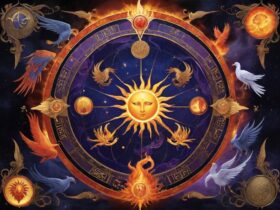
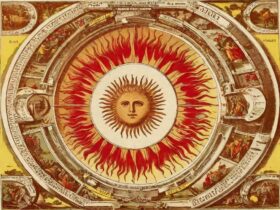
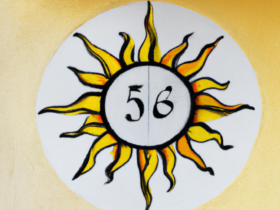
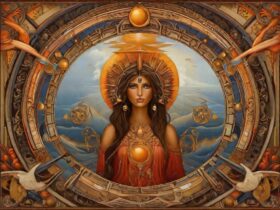






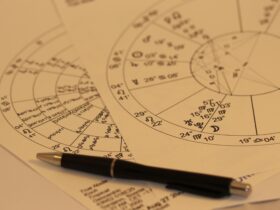



Leave a Reply